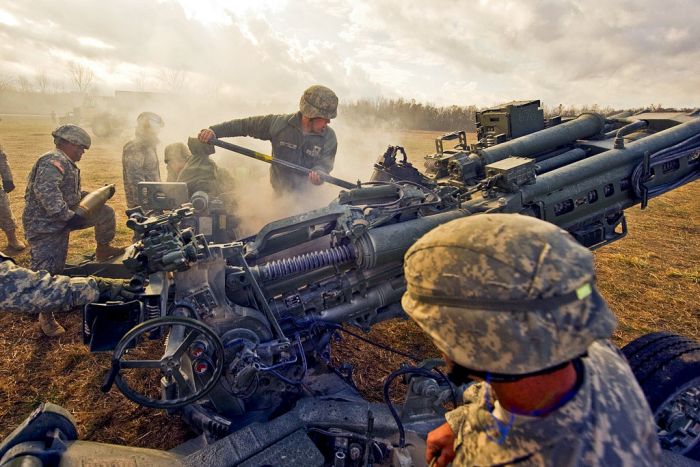|
|
Military Forces
|
This continued in the 20th century, with publications like Punch in the British Empire and Le Père Duchesne in France, poking fun at the military establishment. This extended to media other print also. An enduring example is the Major-General's Song from the Gilbert and Sullivan light opera, The Pirates of Penzance, where a senior army officer is satirised for his enormous fund of irrelevant knowledge.
The increasing importance of cinema in the early 20th century provided a new platform for depictions of military subjects. During the First World War, although heavily censored, newsreels enabled those at home to see for themselves a heavily sanitized version of life at the front line. About the same time, both pro-war and anti-war films came to the silver screen. One of the first films on military aviation, Hell's Angels broke all box office records on its release in 1929. Soon, war films of all types were showing throughout the world, notably those of Charlie Chaplin who actively promoted war bonds and voluntary enlistment.
The First World War was also responsible for a new kind of military depiction, through poetry. Hitherto, poetry had been used mostly to glorify or sanctify war. The Charge of the Light Brigade by Alfred, Lord Tennyson, with its galloping hoofbeat rhythm, is a prime late Victorian example of this, though Rudyard Kipling had written a scathing reply, The Last of the Light Brigade, criticising the poverty in which many Light Brigade veterans found themselves in old age. Instead, the new wave of poetry, from the war poets, was written from the point of view of the disenchanted trench soldier.
Leading war poets included: Siegfried Sassoon, Wilfred Owen, John McCrae, Rupert Brooke, Isaac Rosenberg and David Jones. A similar movement occurred in literature, producing a slew of novels on both sides of the Atlantic including notably All Quiet on the Western Front and Johnny Got His Gun. The 1963 English stage musical Oh, What a Lovely War! provided a satirical take on World War I, which was released in a cinematic version directed by Richard Attenborough in 1969.
|
|









